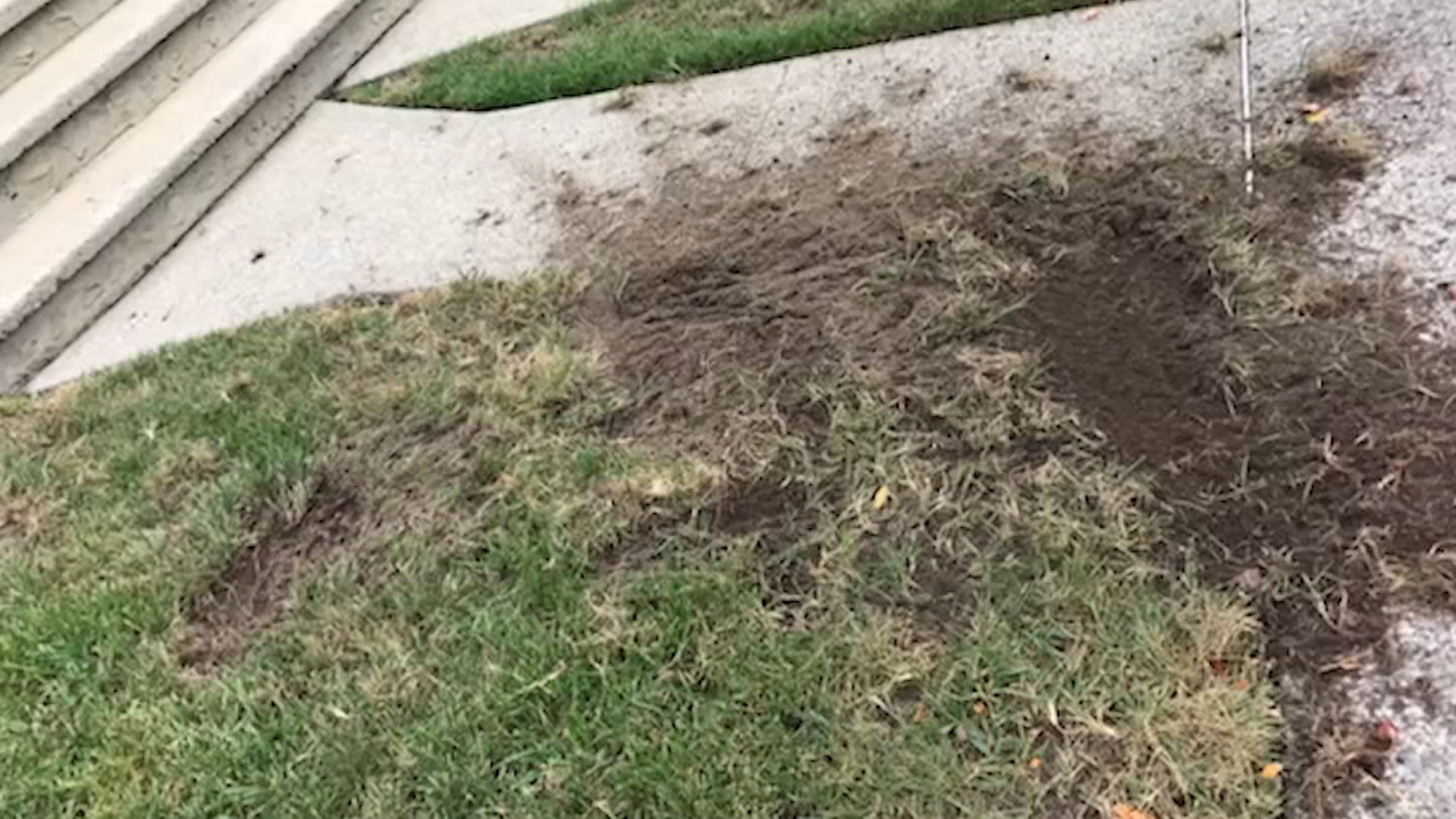Residents along Winfield Street along Staten Island's East Shore have had to replace their front lawns.
The reason? Pesky turkeys. Marianne Marino said the wild birds tore up her grass and left plenty behind.

(The damage Staten Island resident Marianne Marino says wild turkeys caused to her lawn. Amanda Farinacci/NY1.)
"It's getting crazy. They wake you up at 5 o'clock in the morning, howling down the block, looking for one another, and, you know, pooping all over the place," Marino said.
It's believed there are hundreds of wild turkeys living on Staten Island. Last year, the city announced a plan to relocate them to an animal sanctuary in the Catskills so they could safely live out their days in rural surroundings.
Last year, the City Council allocated $100,000 for the relocation, and chipped in another $100,000 this year.
But the relocations are in limbo.
"They are here all the time," local resident Francine Mita said. "I don't think they'll ever get rid of them."
"It's been years and it's long overdue," said Rachel Akfa, another Staten Islander.
Republican Staten Island Councilman Steve Matteo blames the state Department of Environmental Conservation (DEC) and the sanctuary. To prevent the birds from flying away, the DEC has asked the sanctuary to clip the turkeys' wings or install overhead fencing. The sanctuary says it's working to meet those requirements, but it says the DEC keeps making more demands before issuing a permit for the relocations.
"I need a resolution. It's city-funded tax payer money for a good cause. These turkeys are a nuisance," Matteo said. "We are all committed to the relocation, but I'm asking everyone involved to get up there, get to this sanctuary, figure this out quickly, and then let's start relocating as fast as we can."
The sanctuary says it's hoping to begin capturing turkeys in the next six weeks. When that happens, it will begin at Staten Island University Hospital because of the large number of turkeys that have been gathering there for years.
It's a process that will take several months. The sanctuary says it's hoping to finish up before mating season begins in April.
-----
Like this story? Sign up to get similar ones delivered to your inbox every Thursday evening with our Boro by Boro newsletter.



